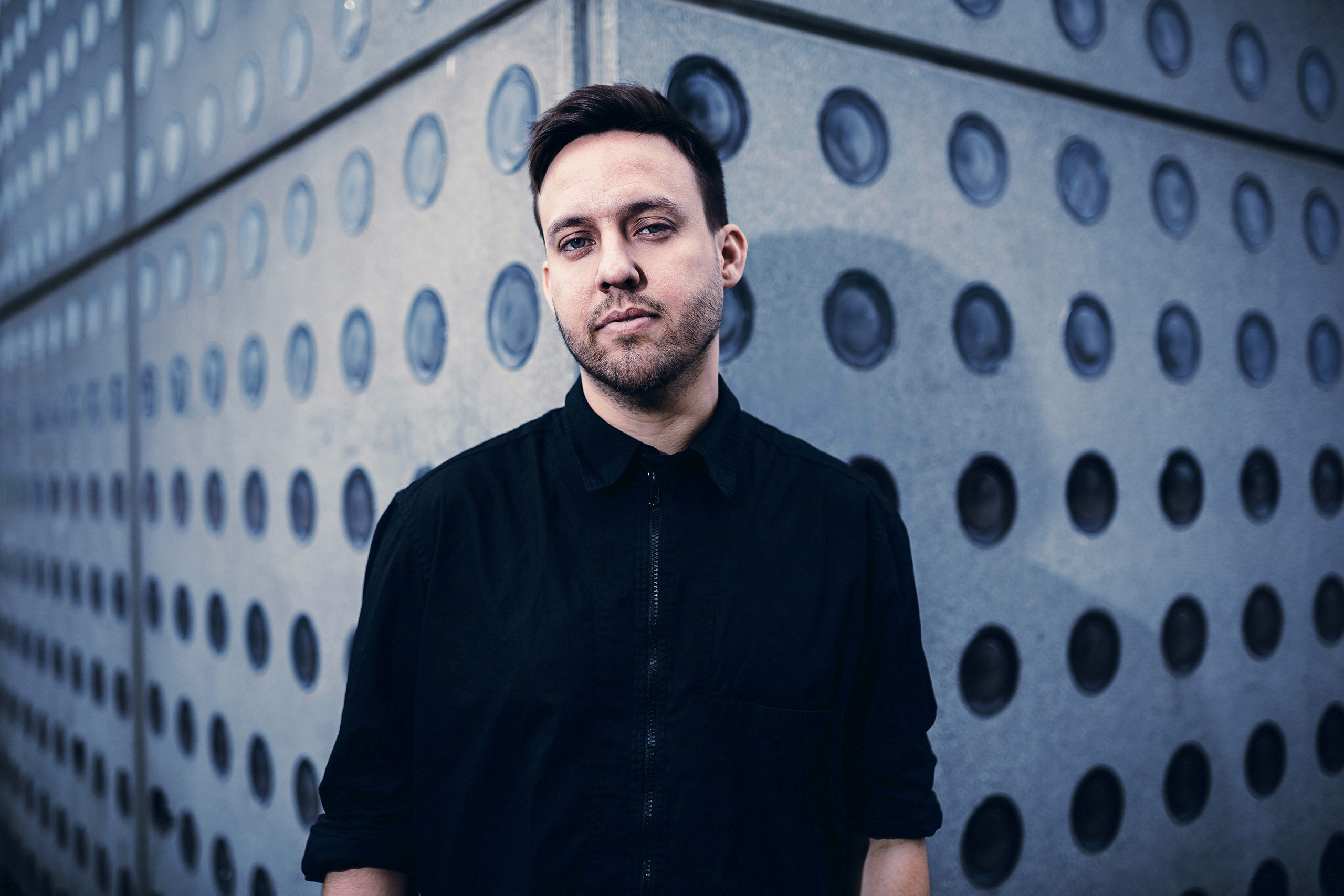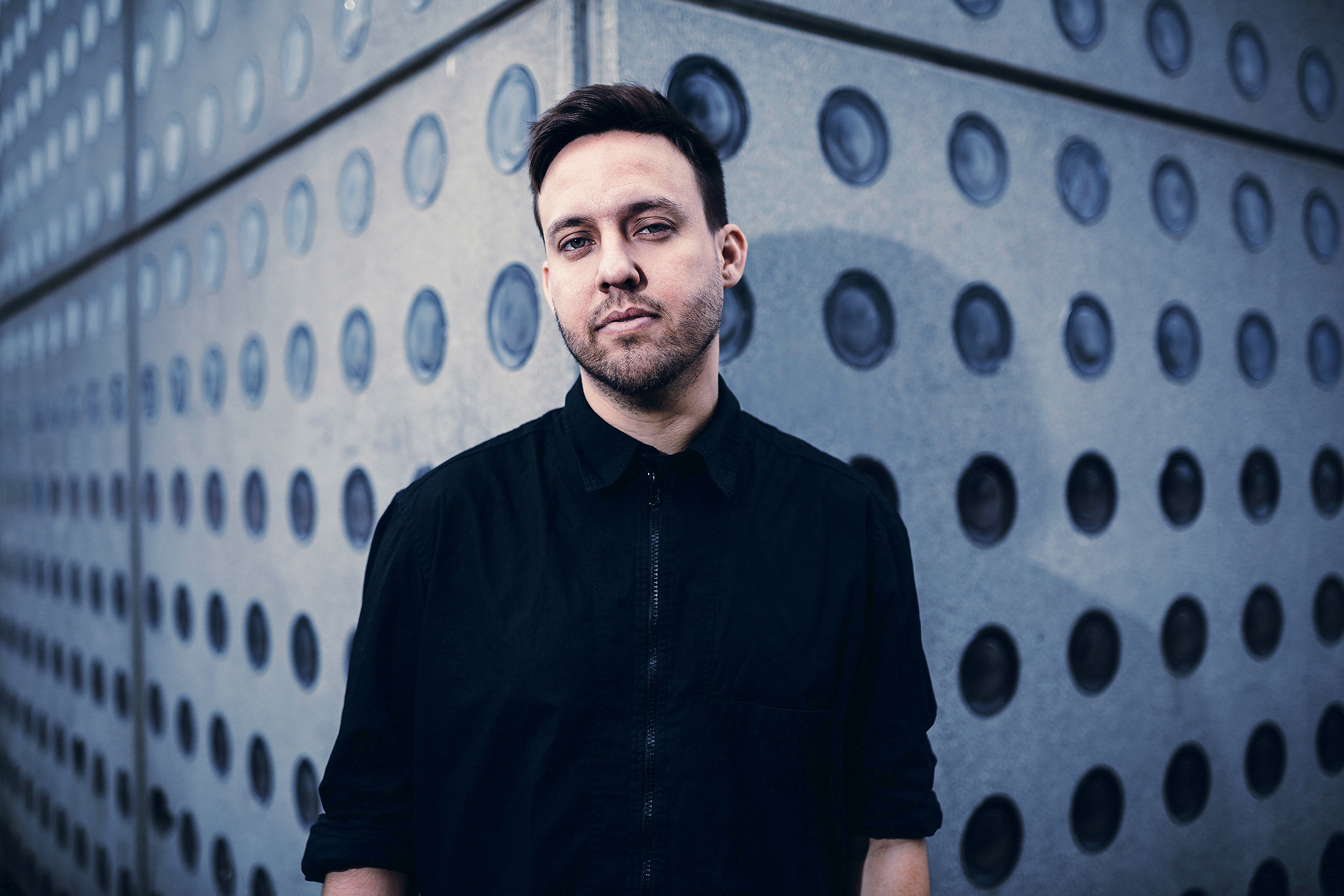Ask the Experts: Maceo Plex / Maetrik
Eric Estornel goes deep on your questions.

Ask the Experts: Maceo Plex / Maetrik
Eric Estornel goes deep on your questions.

Maceo Plex, real name Eric Estornel, started his journey in 1993. Intrigued “by a pair of circular shaped objects designed for holding discs created from vinyl that produced vibrations resulting in sound and music,” he soon began conjuring up mixes of techno, electro, and, house music that quickly gained him great popularity in the early ’90s rave culture. Then, in 1997, while heavily influenced by the sounds of other modern funk theorists such as Model 500, Kenny Larkin, Idjut Boyz, and Convextion, he began experimenting with hardware modules containing knobs and keys to form his early musical compositions. Seduced by the sounds of techno and electro, no sooner was he releasing music of various different sub-genres under various names, most notably Mariel Ito or Maetrik—while also traveling the world playing in some of the best clubs.
And then things changed.
Having moved from the complex and dark life in America to Valencia, Spain, his music began to change, too—and that’s when he began Maceo Plex. After a much-needed retreat into the funky sounds of Parliament Funkadelic, Moodymann, Atjazz, Isolée, and Luomo, Maceo completed his transformation and suddenly felt himself in the limelight, much in thanks to a debut album and a string of club hits on Crosstown Rebels—including 2010’s “Vibe Your Love,” which includes a hefty funk remix treatment by Zev of the Wolf & Lamb clan.
Nowadays, he is simply one of dance music’s biggest names—a DJ, producer and also the label owner of Ellum. It was through the sub-label of the latter that he recently released his latest LP, titled Solar.
Now he answers your questions
What’s the place in the world where you find the most inspiration?
I find the most inspiration at home watching a sci-fi movie late at night. Since I’m always trying to make my music sound a bit futuristic or sci-fi, that’s the way I draw the most inspiration.
Do your tracks always remind you of the same things or do they change their meaning to you with time?
I associate a feeling with my tracks, or perhaps a color. It’s weird but even when I haven’t heard one of my tracks in years, when I hear it again I get the same visualization as when I wrote it.
Any place in the world you’d love to spend a few months?
Yeah, sometimes I feel it would be nice to spend a few months where nobody can get ahold of me, and a place where there is no dance music scene. I feel like the scene itself can diminish creativity or hold us all back from moving forward.
“By releasing everything, you make yourself look more like an artisan instead of an artist.”
What do you do with sessions/projects that seem to drift from your sonic direction? ( i.e tracks you like but don’t see it fitting as a Maceo Plex release).
I keep those projects for myself to play and probably never release because it’s important not to release everything you do. Not every track should be released. By releasing everything, you make yourself look more like an artisan instead of an artist.
Your productions, track selections, and older material have shaped the way I produce music. You have always been very secretive when it comes to your productions and methods. Do you think this is an advantage?
It’s not necessarily an advantage to be secretive about production, I just feel it’s a personal thing. I feel like talking about production too much takes away from the art of it. It’s about the music created not how you created it, and there is no wrong or right way to make music, so why talk about it so much?

Do you always send your tracks out to get mastered or have you got to a stage where you master your own tracks yourself?
I could master my own tracks now and I have done here and there, but it’s usually better to have it heard by fresh ears that can help you realize what the mix down or master needs. So, yes I usually send out to be mastered.
“I think a new artist should first concentrate on doing something truly original and not emulating someone else, and then see where that music fits instead of looking for the newest hottest label.”
What are your views on label signings and in particular your own two labels in relation to new/unknown artists—and what advice would you give to unknown producers trying to get their music out there?
I usually sign tracks that seem totally different to me than the current norm, and since I’m not trying to have a huge powerful label I mostly concentrate on my circle of friends around me. I’m a producer, not an A&R, so I don’t pretend to know what’s best to sign. I just sign what I think is cool passed to me by my friends.
I think a new artist should first concentrate on doing something truly original and not emulating someone else, and then see where that music fits instead of looking for the newest hottest label. If what you’re looking for is big success then you have to be pushed by a label that spends a lot of money to get it heard and has a good following. Or you could do what half the scene does and hire a ghost producer, and spend a fortune on marketing. But I don’t recommend the latter; it only adds to the current over saturation of forgettable music.
A true Plex follower for many years and producing my own bits and bobs along the way, I want to ask which methods Maceo uses to create the kicks heard in all his tracks. Does he follow a set method, does he use VST’s sometimes, just hardware or does he trawl through a library of pre-treated kick samples until he finds the right one? Maceo’s kicks in every one of his tracks from Mariel Ito to Maceo Plex are always super warm and tight. I would love some pointers from the master himself on getting those powerful kicks just right. What audio effects (if any) are dropped on to the kick track, compression, reverb, chorus, EQ etc. Any tips and advice in this area for me would be greatly appreciated.
My kicks are sometimes designed from scratch and sometimes samples. I use very little compression and EQ and mostly make sure the track around it is mixed correctly. Obviously, the kick drum should fit the track harmonically, but it’s mostly about the overall mix down more than the kick itself.
What do you like more, not thinking of making an income: producing music or being a DJ?
Producing music since everyone is a DJ these days! But not everyone can truly produce music well… and I don’t mean produce only one style of dance music, it’s important to experiment with many styles and learn from all of them.
Do you feel that as you have grown in popularity over the last few years you have felt the need to play a bit more commercial in your DJ sets?
Yes, there’s always a level of pressure to please the crowd with accessible tracks, but I play whatever I like and try not to think about it too much. I love basically all forms of dance music from drum & bass to electro, synth-pop, and disco. I play it all it really depends on where I’m at the moment.
Hi, Eric! I’m a big fan of you, most of it, because your incredible touch in your productions; I’ve always been trying to know how you make some sounds. I have a curious question: are the voices in Maetrik “The Entity” (your most crazy track for me), sampled and processed from any Star Wars creatures?
The voice in the “The Entity” is from one of the Star Wars movies yes, can’t remember which episode but I was watching it one day and sampled the voice and wrote the track in just a few hours using mostly cool programming and reverb automation.
What’s your best way to give movement to the tracks? Editing envelopes, using groove pools or sampling and modifying the warping?
First, I delay the kick a bit off from being perfectly on time with the rest of the track—maybe a millisecond or two off. And I always connect the kick drums. I hate space between kick drums. I feel like it’s lazy production and uninteresting. Fill in the gap between kick drums with either a baseline, bass rumble, or long decay.
How do you mix your low end to get that separation and fatness for everything?
Mixing is everything. Mastering is only five percent, at most. I don’t even think about the master unless necessary. I prefer the mix down to be so good that it doesn’t need to be mastered much.
Memorable chords are such a key aspect to so much of your productions, for example, “Solitary Daze” and “The Tesseract.” Do you take a mathematical musical theory approach when writing chords or do you just go with what sounds good?
I’m terrible with music theory; I find the chord on the keyboard that connects with me emotionally and go with it. I have no idea which chord I am playing.
Any advanced tips on how to manage your low end? Besides monitoring and acoustic treatment.
It’s important to have a good set of headphones and learn them well in order to manage your low end. I’ve done many of my best mix downs with headphones and only a bit of touch up on the loud speakers. It takes some getting used to, but it’s my favorite way to work.
I think every producer wants to know, how do you get such a loud clean sound? Do you mix down everything in the box or do you recommend outboard gear?
I recommend outboard gear as much as possible, but if you don’t have the money to spend on loads of gear, plugins are just fine as long as you learn them well.
For your curated showcase at BPM Festival last year, you selected an amazing group of artists and deejays and it made for a truly singular and standout event, against the backdrop of a largely, and firmly, tech-house festival. The eclecticism was not unnoticed. Is this a direction you’re going to continue to highlight? In what ways do these artists inspire you and inform you?
With Mosaic, I literally just want to book artists that make me a better artist. Artists that inspire me. Sometimes we book bigger names that sell more tickets but I always try to combine them with lesser-known names that are innovative and pushing the envelope.
Do you have a general workflow for doing your tracks or it’s always different?
My workflow is horrible; I’m all over the place but somehow make it work in the end. I don’t even stop to organize my tracks. It’s important to keep moving and worry about mechanics later.

